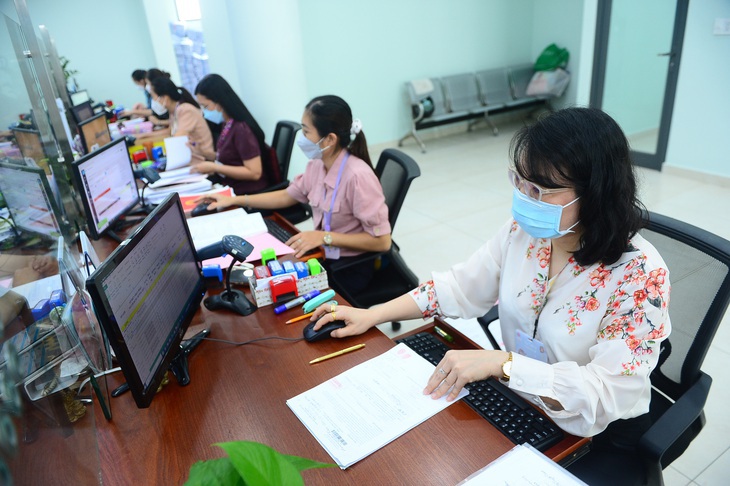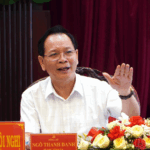Public employees working in businesses will create two-way interaction between public and private sectors, increase application of science in practice, and reduce brain drain in the public sector.
The revised Public Employee Law project (approved by the Government in mid-September, expected to be submitted to the National Assembly in the upcoming session) allows for the expansion of public employees’ working space.
Accordingly, they can sign project-based contracts, work, participate in management, and operate in certain businesses.
Deep research and practical application, benefits for both public and private sectors
If the revised Public Employee Law is passed, public employees will be “legitimate and proper” to work outside under the supervision of management agencies. When strictly managed, this will bring mutual benefits to all three parties: Management agencies, businesses, and the public employees themselves.
Public employees working outside will access practical experience, standing from different perspectives to “verify” the procedures and processes operated and applied by state management agencies or public institutions. These experiences will help public institutions adjust and improve to better serve the people.
Talented public employees, scientists, and those with deep expertise… will “have opportunities to apply their skills” when their expertise is regularly used, refined, and tested in practice. This mechanism creates opportunities for excellent public employees to prevent their talents from becoming obsolete.
Meanwhile, public service units where employees work can retain talent, and the prestige of public service units also increases, creating opportunities to attract more talented people.
On the opposite side, businesses gain direct access to experts and researchers with deep expertise and management experience to apply to practical work, helping reduce training costs and improve operational efficiency.
Businesses can leverage the strengths of the public sector (in-depth research) and the private sector (practical application) to grow stronger, especially in technology fields and R&D projects (research and development)…
Logically, businesses benefit from having experts who understand state policies and laws working in their units. Specifically, policies on taxes, investment, or labor will be accurately applied, reducing legal risks and increasing business efficiency.
This benefit creates a reciprocal cycle: businesses receive support for better operations, and conversely, the state benefits when policies are understood and deeply complied with in actual production and business practices.
The public-private human resource exchange also spreads knowledge and innovation spirit. When public employees operate businesses and exploit research results from their units, it helps scientific products be practically applied, quickly put into exploitation, and updated to bring profits to both parties.
From this perspective, public-private cooperation is also an opportunity to develop scientific topics in the public sector, helping to maximize both capital sources and management experience to expand the market.
How to regulate public employees with “dual roles”?
A major question arises for the new mechanism: When public employees have “dual roles,” could they neglect their duties for personal interests or abuse their public positions to benefit their businesses?
In reality, if public employees become too engrossed in their private businesses, they might neglect public duties. Simultaneously, the greater concern is conflict of interest regarding responsibilities.
For the policy expanding public employees’ working rights to be effective without creating loopholes for conflicts of interest, detailed regulations and comprehensive control mechanisms need to be established.
Laws need to clearly define the scope and fields of private sector activities that public employees are permitted to participate in.
For example, public employees in universities and research institutes should only work in businesses developing science, applying and transferring technology – fields closely tied to the mission and functions of their public service units.
Regulations could prioritize public employees working, operating, founding, and managing non-commercial legal entities (science and technology enterprises, incubation centers…), rather than commercial legal entities. This keeps public employees’ external activities aligned with the principles and purposes of their public service units, reducing the risk of being driven solely by profit.
Simultaneously, public service units allowing employees to work outside need strict control mechanisms for the use of public resources.
Regulations should also prohibit or restrict businesses employing public employees from directly providing services or products to the agencies where these employees work. If businesses participate in bidding to supply services to public agencies, the relevant public employees must report and cannot participate in decision-making processes to ensure objectivity.</p






